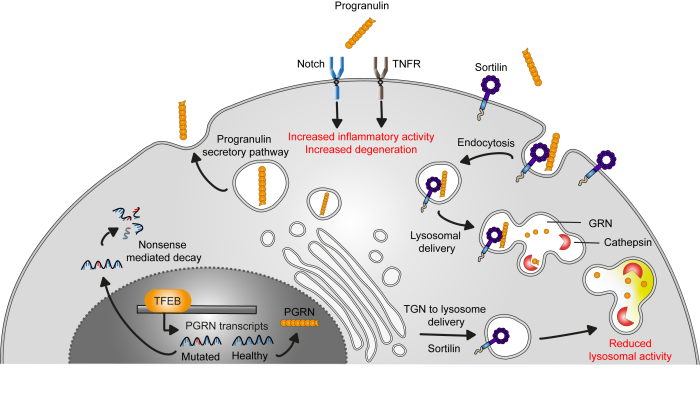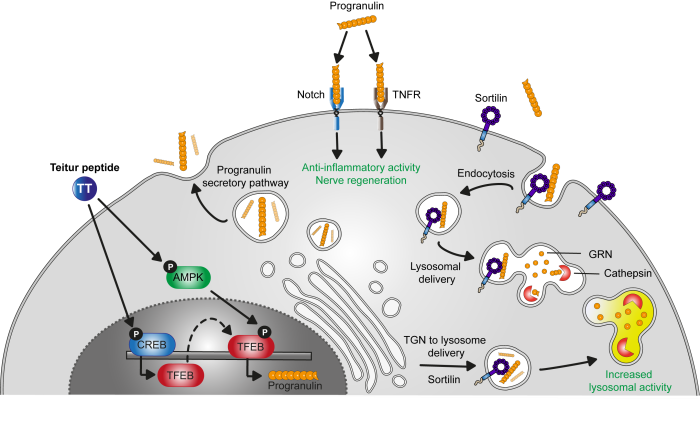Overview
Frontotemporal dementia (FTD) or frontotemporal degenerations refer to a group of disorders caused by progressive nerve cell loss in the brain’s frontal lobes (the areas behind your forehead) or its temporal lobes (the regions behind your ears).
The nerve cell damage caused by FTD leads to loss of function in these brain regions, which variably cause deterioration in behaviour, personality and/or difficulty with producing or comprehending language.
While sharing several features with Alzheimer’s disease, key differences are also observed, including earlier onset for FTD and earlier noticeable behavioural changes.
Frontotemporal degenerations are inherited in about a third of all cases with mutations in the Granulin gene, GRN, constituting about 20%
All pathologic GRN mutations reduce progranulin levels or result in loss of function. Indeed, blood progranulin levels indicate reduced levels of progranulin in patients carrying these mutations, and are rapidly becoming a diagnostic biomarker. Progranulin’s role in FTD is being investigated in parallel with potential therapeutic approaches aimed at increasing its levels in the CNS.
Teitur has developed a novel compound which restores levels of Progranulin, thereby function as potential disease modifying treatment.


